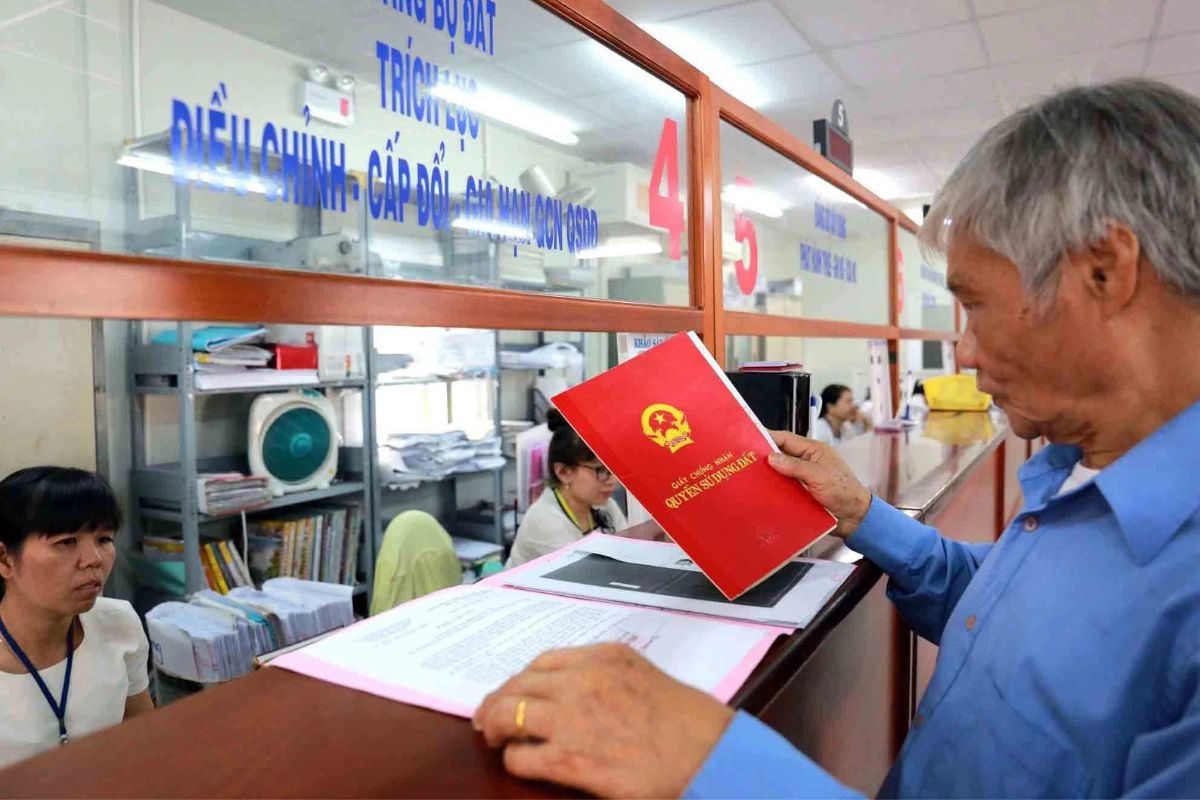How will real estate tax be affected after July 1, 2025? What are the notable changes and what should people pay attention to? Tuong Phat Land invites you to read the article to better understand real estate tax in the new period!
1. What is real estate tax?

Real estate tax is a tax incurred when an individual or organization has the right to use land or owns a structure attached to the land. This revenue represents a mandatory financial obligation to the State and is applied to types of land such as residential land, land for housing construction or non-agricultural structures.
The subjects that must pay Real estate tax are legal land users, including individuals and organizations that are exploiting, using or owning land according to the provisions of law. This is one of the regular obligations associated with land use rights in Vietnam.
2. From 63 to 34 – A major administrative turning point from July 1, 2025

According to Decision 759/QD-TTg dated April 14, 2025, based on Resolution 60-NQ/TW dated April 12, 2025 of the 11th Central Conference (13th Party Central Committee), the Prime Minister has officially approved the plan to rearrange 52 provincial administrative units. According to this plan, from July 1, 2025, the provincial merger project will officially take effect nationwide. Vietnam will change from 63 provinces and cities to only 34 provinces and cities.
Although the main goal of the project is to streamline the apparatus and improve administrative efficiency, in reality, this also poses many changes related to tax management, especially Real estate tax. Specifically, after the provinces merge, the land price list, the authority to process records, tax payment addresses, declaration procedures and determination of financial obligations on real estate may all change depending on the new province. Therefore, understanding the context and preparing to adapt early is essential!
3. What changes will real estate tax have after the province merger on July 1, 2025?

Many people have questioned whether the merger of provinces into centrally-run cities will affect real estate tax. For example, if a locality like Binh Duong is merged into Ho Chi Minh City, will the new land price list (which is significantly higher) be applied immediately, leading to an increase in real estate tax?
——————–
Article 159. Land Price Tables
…
- Land price tables shall be developed based on regions and specific locations. In areas with digital cadastral maps and land price databases, land price tables shall be constructed down to individual land plots, based on value zones and standard land parcels.
- Provincial People’s Committees shall prepare and submit the initial land price tables to the corresponding People’s Councils for approval, to be announced and applied starting from January 1, 2026. Annually, Provincial People’s Committees are responsible for proposing adjustments, amendments, or supplements to the land price tables for approval and implementation by January 1 of the following year.
In necessary cases, if adjustments, amendments, or supplements to the land price tables are required during the year, the Provincial People’s Committees shall submit them to the Provincial People’s Councils for decision.
…
——————–
Thus, according to this regulation, the merger does not immediately change the Real estate tax. At present, the merged locality still uses the old issued land price list. Only when there is a new adjustment decision from the Provincial People’s Committee can the new land price list be replaced.
From January 1, 2026, according to Article 159 of the 2024 Land Law, provinces and cities will develop and issue a new annual land price list, applicable from January 1 each year. If there is a merger or new planning, land prices may increase or decrease depending on the actual situation, infrastructure and investment needs in the area.
The land price list is not only for reference, but also a legal basis for calculating many financial obligations on land. Specifically:
- Land use fee when changing the purpose of use
- Registration fee when issuing a certificate or changing the name
- Personal income tax when transferring assets
All are calculated based on the land price at the time of procedure, based on the price list issued by the province. Therefore, if the land price list increases, the Real estate tax will increase accordingly, especially in newly merged areas or areas with urban planning, causing the cost of making red books or transferring real estate for people to increase significantly.
A noteworthy point is that the merger of provinces does not change the legal value of the issued Land Use Rights Certificate. You do not need to change the red book, unless you need to change personal information, separate the plot, change the name or change the purpose of use.
4. (Latest update) How to calculate personal income tax when transferring real estate

According to the provisions of Clauses 2, 3, 4, Article 12 of Circular 111/2013/TT-BTC, amended and supplemented by Article 17 of Circular 92/2015/TT-BTC, we can calculate personal income tax when transferring real estate as follows:
| Personal income tax payable = Transfer price x Tax rate 2% |
The transfer price is the price stated in the transfer contract, but must not be lower than the land price list issued by the provincial People’s Committee at the time of the transaction. In case the price on the contract is lower than the land price regulated by the State, the tax authority will use the price in the land price list to calculate the tax. If the transferred property is jointly owned by husband and wife, siblings or multiple people, the tax liability is divided according to the ownership ratio of each person.

Updating the Real estate tax policy after the merger will help people and investors be more proactive in transactions. In general, not all changes will come immediately after the merger, but Real estate tax will certainly be an area that will be affected in the near future. Let’s update the next changes with Tuong Phat Land through the following articles!
Contact info:
Hotline: 0909.61.45.69
Website: https://tpapartment.com/
Fanpage: https://www.facebook.com/tpapartmentvn
Youtube: https://www.youtube.com/@Tpapartment





